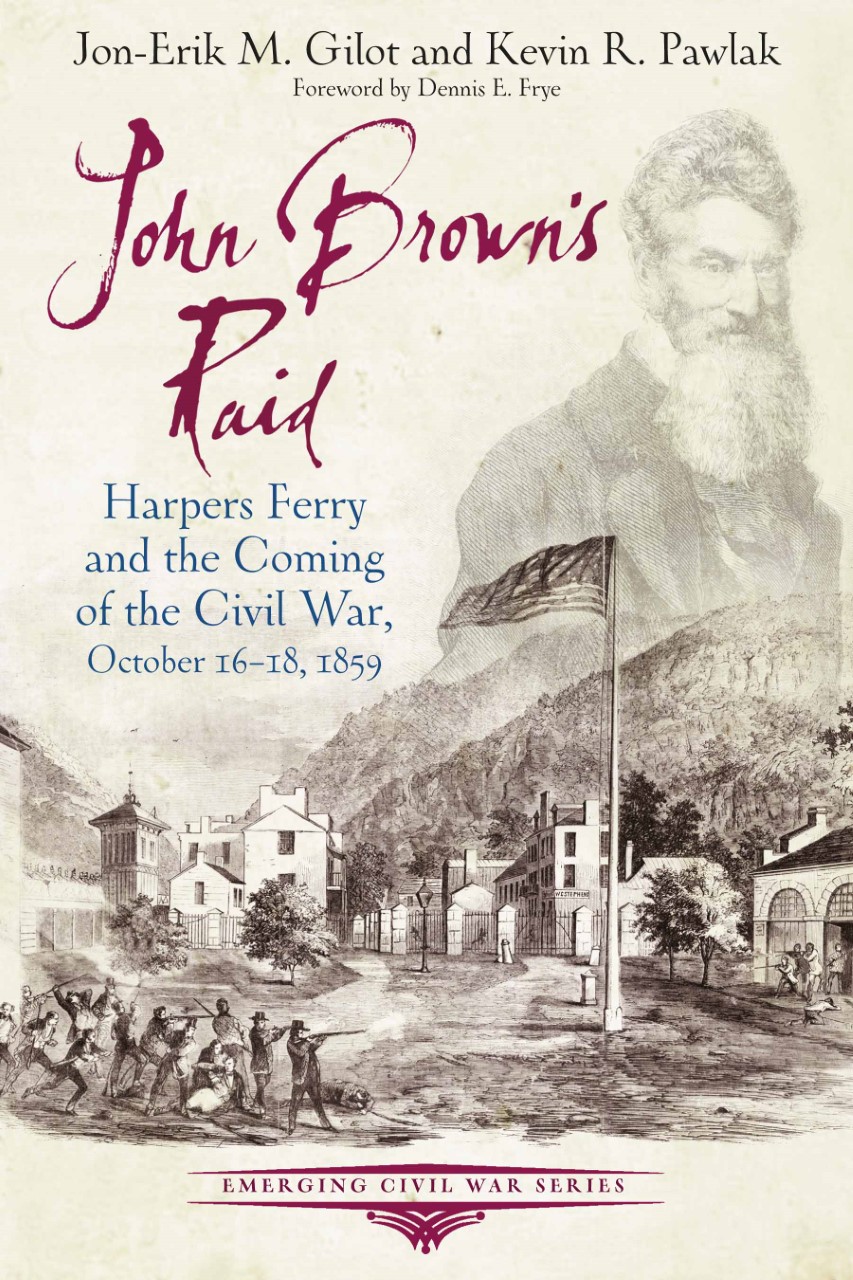Now Available from the Emerging Civil War Series: John Brown’s Raid
 Summer is fast approaching—that time of year when we all have to decide whether we want to keep that impressive Civil War beard we’ve grown over the winter or shave it off to help us feel a little cooler in the summer heat.
Summer is fast approaching—that time of year when we all have to decide whether we want to keep that impressive Civil War beard we’ve grown over the winter or shave it off to help us feel a little cooler in the summer heat.
While a lot of people could contend for the title of “best Civil War beard,” I always call to mind the wild beard of that crazy pre-war prophet, John Brown.
Kevin Pawlak and Jon-Erik Gilot chronicle Brown’s pre-war story in one of this spring’s Emerging Civil War Series releases, John Brown’s Raid: Harpers Ferry and the Coming of the Civil War, available now from Savas Beatie.
The book tells the story of Brown’s rise and radicalism, his infamy in Kansas, and his plan to start a slave rebellion armed with guns taken from the Federal arsenal at Harper’s Ferry, Virginia. The book includes a driving tour of sites associated with Brown’s raid and a walking tour of Harpers Ferry itself. Legendary historian Dennis Frye provides the book’s foreword.
“The story of John Brown has been told many times,” Kevin concedes. But there’s something about it, he and Jon-Erik contend, that makes it irresistibly compelling. “There’s something about Harpers Ferry that just grabs you and won’t let go,” Jon-Erik says.
What makes this new book stand out from others? Kevin points to the tour sections. “There are several good Harpers Ferry tour guides,” he says, “but none look at the locations where the raid happened and take people to lower town Harpers Ferry, the Kennedy Farm, and Charles Town. We wanted people to not only learn about the raid through what we wrote but by going to the places where it happened.”
For Jon-Erik, the appeal of the project rested in the opportunity to explore the human side of the iconic story. “I’ve always been drawn to the human interest stories,” he explains. “I first visited Harpers Ferry in 1997 and came home to learn that one of Brown’s raiders, Dangerfield Newby, lived just a few miles from my home in southeastern Ohio. And while I consider Newby’s story one of the most tragic, most heart-wrenching of the raid, John Brown’s Raid is full of personalities: the raiders, militia, townspeople, Brown’s supporters and detractors, the free and the enslaved. During the course of our research for the book, I found I had an ancestor who was present in one of the Virginia militia companies at Brown’s execution. There’s no shortage of stories to uncover.”
Jon-Erik has also added his own story to the story of Harpers Ferry. “I proposed to my wife on Maryland Heights fourteen years ago,” he says, “selfishly hoping she’d feel that same connection—not with me, but with Harpers Ferry. Thankfully, I think she feels it, too.”
John Brown’s Raid has made that personal connection even deeper. While Kevin has published several other books, this is Jon-Erik’s first. “I’ve contributed essays and articles to a bunch of publications,” he says, “but seeing my name on the cover of a book is special, especially so when it’s next to the names of a few historians I’ve long admired like Kevin Pawlak and Dennis Frye.”
Was John Brown a domestic terrorist? Was he a freedom fighter? Was he a visionary or a madman? Jon-Erik and Kevin offer much to think about in this highly readable account.
For the record, neither Jon-Erik nor Kevin sport crazy Civil War-era beards, but John Brown’s Raid makes excellent reading nonetheless. 🙂
Great pertinent info!??
I’m a lifelong filmmaker and historian, I’ve always wondered why no one has made a feature film about John Brown. Much has been written, but no modern movies exist.
The reason? Because any such film would necessarily be supportive of domestic terrorism. No serious film about Brown could come to any other conclusion but that terrorism is good, and that terrorism works—as long as you have “extreme” circumstances, like slavery, to justify it.
Of course, the gigantic problem is that everyone figures THEIR own cause justifies terrorism.
The famous (and excellent) movie “The Battle of Algiers” can’t help but justify terrorism, for instance. It actually worked in that specific war, and therefore the movie has since been cited by defenders of terrorism around the world.
In fact, terrorism almost always fails to achieve its objectives. Civilians die, but nothing changes.
Except in John Brown’s case, where one can argue that his terrorism was key to the entire destruction of slavery.
John Brown was a visionary, a terrorist, a murderer, a fanatic, and much more rolled into one. A totally unique person in totally unique circumstances, I can think of no one in American history like him.
Was John Brown a hero? Was he evil? Yes!